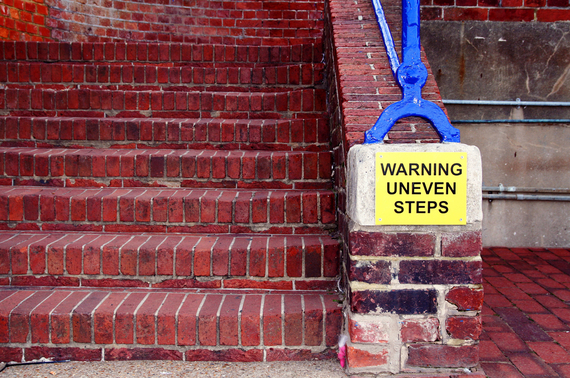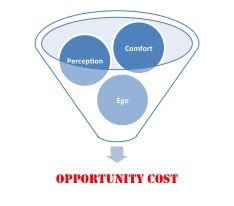Is having good habits, a good habit in itself?
Reading a piece on instant gratification one evening, I realized for the first time why I have always enjoyed breaking my own habits.
Because we make a decision even when we choose to not make one.
The article I was reading was about how to practice restraint and not eat that certain extra piece of chocolate cake; instead I wondered how to refrain from answering my mails immediately, even when working on another project. The satisfaction gained by impulsive behaviour does not apply restrictively to vices and bad habits, but also to good ones. To paraphrase Jean Nidetch "It is choice -- not chance that determines your destiny." It is choices, not habits, which should define us. As positive a process as it may appear, is having good habits a good habit in itself?
How habits make us feel
The routine of a well-conditioned action brings with it the soothing feeling of self-assurance. Examples may include drinking coffee in the morning or maybe sleeping on the left side of the bed. These actions at their fundamental economize mental resources: it so happens that some of these habits, such as running in the morning and ensuring zero inbox in the end of the day are beneficial to the individual and are thus lauded as good ones.
Breaking habits however is far more uncomfortable than creating them. It is easy to see why one would want to see some of the detrimental aspects of them disappear from their lives, of which addiction is an obvious example. Yet other habits that are equally difficult to break do get broken for the purpose of maintaining mental agility, such as sleeping on demand in different time zones to avoid jetlag, or driving in the opposite side of the road in another country.
How can a habit influence us?
To understand how far a simple habit can influence us, I will ask that you take a minute and think to which side, on your left or right, you prefer to have people when standing or walking. I've noticed that usually it is to the side of the stronger arm. While no academic on the matter, it is intuitively true that people do so as to unconsciously be able to better defend themselves if required. When a person then stands on the 'wrong' side, it feels imminently uncomfortable and an attempt to switch sides occurs. If another person purposely remains on the 'wrong' side, people often experience an off-balance feeling, often interpreted as nervousness and rationalized away as the other person appearing "intimidating" or "unfriendly" even if otherwise their behavior was nothing of the sort.
Routines become habits and habits can define a person to the point they stop defining themselves. If the formation of a habit is the beginning of such a process, can it be that intentional self-awareness leads to different results? If breaking the patterns of habits leads to freedom and freedom unlocks one's potential, could it be that habits themselves limit potential?
Good habits are known to free the mind through economy of resources. Habits are shortcuts of the mind and body, processing in a non-cognitive manner information and external stimuli. Functioning on habit mode, a person does not have real time awareness of the environment or process taking place, and therefore has by default distorted perception. People, however, cannot survive without relying on habits, as the conscious mind can only cope with limited input.
How can good habits lead to opportunity cost?
Is it possible though that one could be their own obstacle through their habits? Such possibility does exist in terms of comfort, perception and ego, all leading to opportunity cost:
1.Comfort yields resistance to change, which leads to stagnation.
2.Perception creates a barrier, a filter, to any other view but one's own, distorting reality.
3.Ego; as the habit becomes part of oneself and shelters itself, creates defensiveness and therefore limitation and exclusion of options.
How to employ a habit
Habits therefore should be seen as similar to a light switch that can be turned on and off consciously, depending on circumstances and targets rather than constitutive fixtures. Even in cases where falling back on the habit would be the most convenient way to achieve something, we stay in the dark about all the other unexplored paths that might have been taken if we maintained conscious awareness. Switching on and off habits may lead to the option of cognitive behavioural awareness, when required, and accordingly self-adjustment.
Habits should be employed, only as matter of choice, ensuring economy of resources, better decision making and self-improvement. "Creatures of habit" become slaves of their habits, whilst decision makers remove one further barrier away: their own selves.
The roadmap of good habits
Is then developing good habits a roadmap to success? Good habits appear to be stepping stones in the rise to success. One needs to have a destination, a purpose and self-awareness to switch to a different stone comfortably depending on how circumstances influence their target. Stepping to a flat stone to go fast or to a tall to look far. A habit that was once "good" may prove to be "bad" long-term, in different or changing circumstances.
If habits are stepping stones, their choice should be the result of reality's and targets' cognitive approach and their adjustment a constant opportunity. Choices, not habits, should define us.


